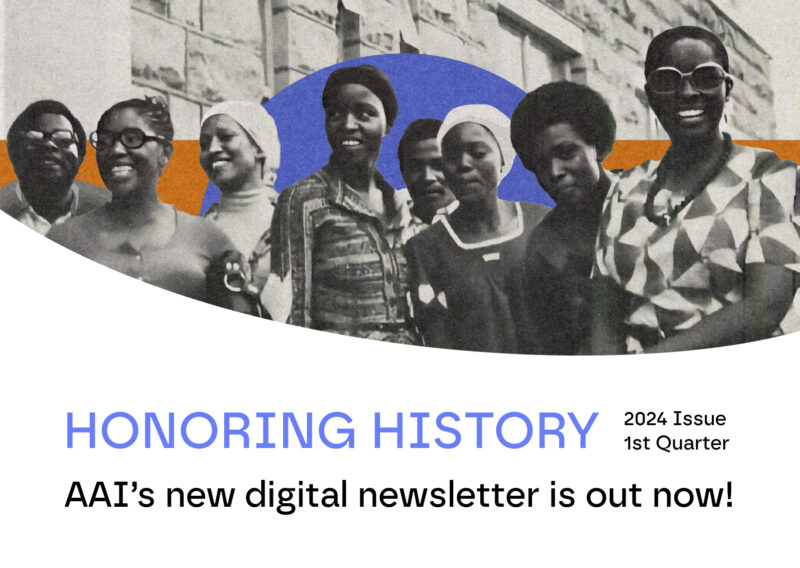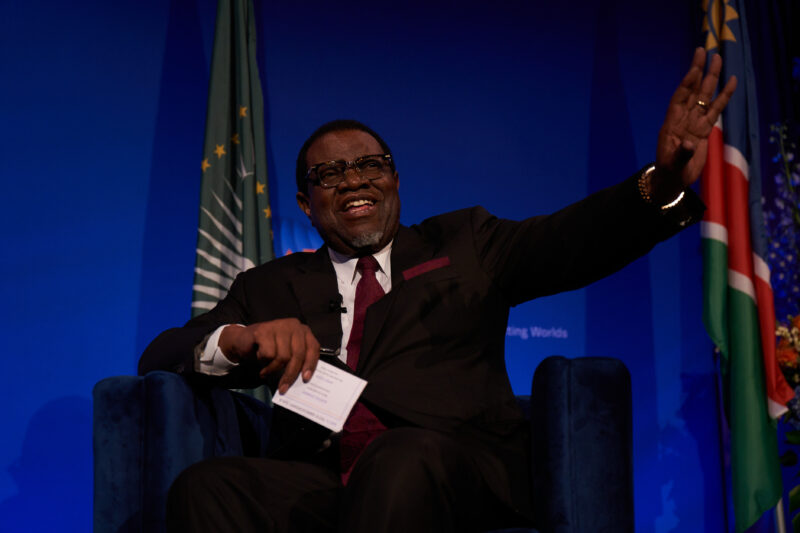AAI Team Offers TLP Students Approaches to Leadership Effectiveness

Melissa Howell, Program Officer for the Transformational Leadership Program (TLP), and Amini Kajunju, AAI President and CEO, give a presentation to the newest cohorts of TLP participants.
A day prior to the State of Education in Africa conference, AAI President Amini Kajunju led an interactive presentation on “Leading for Change and Impact” to the newest cohort of students in the Transformational Leadership Program (TLP) at the Enterprise Development Centre on September 1 in Lagos, Nigeria.
Kajunju was joined by Melissa Howell, who serves as Program Officer, managing the Transformational Leadership Program. The TLP, AAI’s signature leadership training program, provides leadership development and management training to NGO leaders in partnership with African colleges and universities. Enterprise Development Centre is an academic partner of n Nigeria.
The presentation highlighted a broad range of topics including “Leadership Continuum”, “Adaptive Leadership”, “Barriers to Change”, and “The Future of African Leadership”.
Reflection questions were posed throughout the presentation to allow students to provide feedback on the meaning of leadership within the context of their organization and how they view themselves as a leader.
TLP students were also introduced to new leadership concepts such as “disruptive leadership”, which is defined as leadership that creates change and takes risks. This leadership style also instills a culture of creativity where individuals have the freedom to question the status quo and offer suggestions for doing things differently.
The leadership presentation enabled students to think through and describe a time when an exemplary leader effectively resolved a conflict. Students shared their personal experiences of exemplary leadership and also decision-making at a challenging time.
Additionally, the presentation outlined relevant issues such as underemployment, which is a state in which a person of working age with relevant credentials and work experience, will work in a job position lower than his or her qualifications. Students shared how underemployment impacted their job performance and aspirations.
In the discussion on “The Future of African Leadership”, Kajunju spoke about the importance of understanding local power structures and priorities in solving social problems. An engaging discussion ensued on why some African institutions have experienced leadership challenges.
Some said older leaders often do not want to give up power, while others noted that traditions and cultural norms inhibit a quick transfer of leadership.
To conclude the presentation, Kajunju quoted scholar Dr. Reuel Khoza: “Africa needs to develop leaders who will be known less for what they say and more for what they deliver; less by their title and position and more by their expertise and competence; less by what they control and more by the mindsets they develop and shape both by their personal integrity and for exceptional organizational abilities.”



